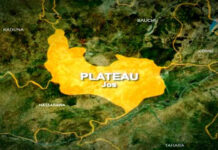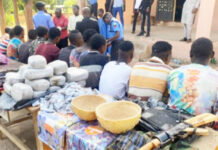A coalition of non-governmental organizations has stressed the need for Bauchi state government to fast-track efforts at tackling the problem of malnutrition in rural communities across the state.
Representatives of the organizations made the call on Thursday in Bauchi at a two-day training on the prevention and treatment of severe and acute malnutrition (SAM) in Nigeria.
Mr Solomon Dogo, Senior Programme Manager of International Society of Media in Public Health (ISMPH), said government needed to invest in nutrition programmes to avert stunting or risk diminishing the impact of other investments in education, health and child protection.
He explained that such move would accelerate progress on nutrition, hence the suggestion to policy makers in the state on the need to do something fast.
Dogo, however said it would require the collectivity of governments, agencies, civil society, media and communities to show commitment in addressing the challenges of malnutrition.
Also speaking, Mr Edosa Oviawe, a Development Consultant stressed the need for parents to give priority to good nutrition for children.
He urged the media to hold government accountable through reportage and awareness campaign on the need to make adequate budgetary provision for nutrition programmes.
In her contribution, Dr Grace Onatu, Programme Manager of Network for Health, Equity and Development (NHED), drew attention to the dangers of malnutrition , especially in the lives of children under five years.
She explained that achieving the targets of nutrition was possible if all partners show Ed commitment to immediately step up investments in nutrition.
“Together, we can make nutrition a priority and stunting growth a thing of the past, if really the stakeholders show commitment to the cost,” Onatu said.
She then appealed to governments at all levels to allocate a substantial percentage of their budgets to support pro-nutrition programmes and interventions, paying special attention to the most disadvantaged.
“These include expanding micronutrient delivery, promoting exclusive breastfeeding for the first six months, and improving child-feeding practices,“ she said.
News Agency of Nigeria (NAN) reports that participants at the training included representatives of the International Society of Media in Public Health (ISMPH), Aisha Buhari Foundation (ABF), Civil Society Legislative Advocacy (CISLAC and Network for Health Equity and Development (NHED).
Create an account
Welcome! Register for an account
A password will be e-mailed to you.
Password recovery
Recover your password
A password will be e-mailed to you.
Sunday, May 12, 2024











